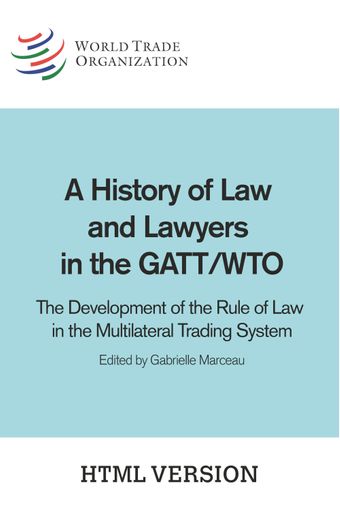The founding of the Appellate Body

- By: Debra P. Steger
- Source: A History of Law and Lawyers in the GATT/WTO , pp 36-36
- Publication Date: January 2015
- DOI: https://doi.org/10.30875/df8509a4-en
- Language: English
The Appellate Body is a unique institution in the world today. Uruguay Round negotiators did not intend to create a court. Indeed, if they had, they could have negotiated a statute creating a court like the International Court of Justice (ICJ) or the International Criminal Court. But they did not; they included only one, sparse provision – Article 17 – in the Dispute Settlement Understanding (DSU) relating to the Appellate Body, as compared with several provisions and an appendix dealing with the panel process. Why? Because they were concerned that there might be an occasional case in which a panel might render a ‘bad report’ that, under the new system they were negotiating, would be automatically adopted by the Dispute Settlement Body (DSB). The idea of creating an Appellate Body was the quid pro quo for parties losing the political right to block adoption of panel reports. Negotiators thought that panel reports would be appealed very rarely. At the same time, they intended that the Appellate Body should be separate and independent from the WTO Secretariat that served the panels.
-
From This Site
/content/books/9789287046598s013-c015dcterms_subject,pub_countryId-contentType:WorkingPaperSeries -contentType:Periodical -contentType:BookSeries -contentType:ReportSeries105


